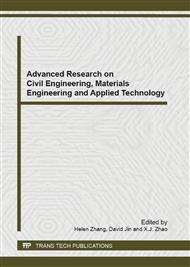p.384
p.391
p.395
p.399
p.405
p.410
p.416
p.422
p.426
Applied Technology in Analysis of Status Quo of Academic Theses Duplicate Checking of China and the Treatment Countermeasures
Abstract:
applied technology has become more and more popular in plagiarism detection, but the actual results to prevent the plagiarism like duplicate are unsatisfactory. This paper constituted a analytical frame using game theory to rethink about basic features and status quo of duplicate checking, roundly researched the pursuit of relevant participants. It pointed out asymmetric information is an important factor in the duplicate checking.In addition,investigation cost and inappropriate management mechanism also lead to the relevant departments wouldn't check the fraud. Namely, the government shouldn't carry out strict supervision, but moderate supervision. And then the participant try to make the competent authorities unaware of the fraud. As a result, the aim of supervision isn't to stop all plagiarism, but to limit academic dishonesty to some extent. Finally, some valuable suggestions against plagiarism and applied technology were prompted.
Info:
Periodical:
Pages:
405-409
DOI:
Citation:
Online since:
December 2013
Authors:
Price:
Сopyright:
© 2014 Trans Tech Publications Ltd. All Rights Reserved
Share:
Citation:


